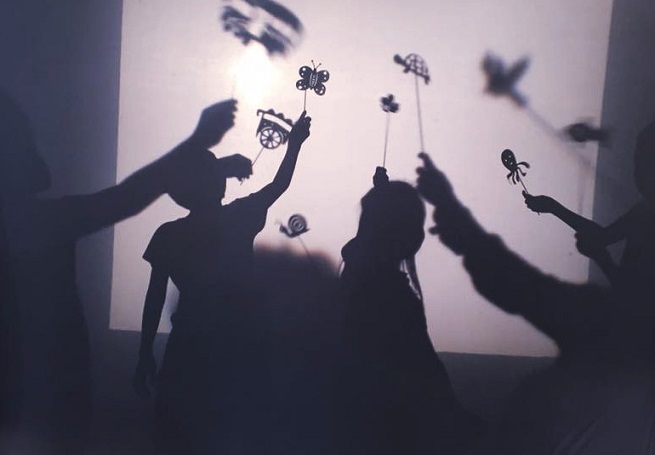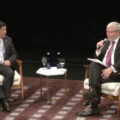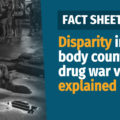I imagine many of us have watched and have been moved by the powerful speech by Emma Gonzalez, a survivor of the Feb. 14 Stoneman Douglas High School shooting in Parkland, Florida, during the “March for our Lives” gun control protest rally in Washington D.C. last March 24.
Gonzalez’ speech was a heart-rending in its simplicity. Three hundred thirty-four words and silence.
Coverage of PBS NewsHour
She started with this:
“Six minutes, and about 20 seconds. In a little over six minutes, 17 of our friends were taken from us, 15 more were injured, and everyone, absolutely everyone in the Douglas community was forever altered. Everyone who was there understands. Everyone who has been touched by the cold grip of gun violence understands. For us, long, tearful, chaotic hours in the scorching afternoon sun were spent not knowing.
“No one understood the extent of what had happened. No one could believe that there were bodies in that building waiting to be identified for over a day. No one knew that the people who were missing had stopped breathing long before any of us had even known that a code red had been called. No one could comprehend the devastating aftermath, or how far this would reach, or where this would go.
“For those who still can’t comprehend, because they refuse to, I’ll tell you where it went. Six feet into the ground, six feet deep. Six minutes and 20 seconds with an AR-15, and my friend Carmen would never complain to me about piano practice. Aaron Feis would never call Kyra “miss sunshine,” Alex Schachter would never walk into school with his brother Ryan, Scott Beigel would never joke around with Cameron at camp, Helena Ramsay would never hang around after school with Max, Gina Montalto would never wave to her friend Liam at lunch, Joaquin Oliver would never play basketball with Sam or Dylan. Alaina Petty would never, Cara Loughren would never, Chris Hixon would never, Luke Hoyer would never, Martin Duque Anguiano would never, Peter Wang would never, Alyssa Alhadeff would never, Jamie Guttenberg would never, Jamie Pollack would never.”
At this point, Gonzalez fell silent. It was a deafening silence as the throng of over a million people burst into tears and shouted, “Never again.”
When the timer beeped, she concluded her speech:
“Since the time that I came out here, it has been six minutes and 20 seconds. The shooter has ceased shooting, and will soon abandon his rifle, blend in with the students as they escape, and walk free for an hour before arrest. Fight for your lives before it’s someone else’s job.”
I watched again the speech of Gonzalez and my mind is filled with scenes closer to home. I think of the survivors ofPresident Duterte’s brutal anti-drug war.
I think of Marissa, the 13-year old who witnessed the killing of her father and mother by plainclothes men who barged into their ramshackle hut in Caloocan City late night last year.
Before the men came, Marissa’s mother, hearing the commotion in the neighborhood, rushed to the box containing the family’s valuables and got a piece of paper – a certificate of her husband’s surrender to the police when authorities were conducting a survey of drug users in the community. She held the paper up to the four armed men who entered their hut. The men ignored the paper.
Marissa’s father was cuddling his youngest child who was crying, awakened by the noise of the intruders. “Ikaw ba si Rodrigo (Are you Rodrigo)?” the men asked Marissa’s father. The men had torepeat the question before the frightened father was able to answer “yes.” He was shot three times in the head. He slumped dead still cuddling his crying child.
The men were going out of the door, when the leader decided to return worried of leaving witnesses to the murder they had just committed. A member of the team tried to dissuade him against killing the mother, saying she has four children to take care of.
But the leader was heartless. He shot the mother, also three times.
All these Marissa witnessed. An orphan at 13, with three siblings to take care of.
There are thousands of Marissa in our midst.

Left-behind children deal with the trauma of losing a parent in the drug war through art sessions where they express themselves, courtesy of groups like Project SOW and Rise up for Life and for Rights Philippines. Photo by Kaela Malig
VERA Files, in a two-part report last December gave a glimpse of the trauma the survivors of the victims of the government’s bloody anti-drug campaign as documented by non-government groups Project SOW and Rise Up.
Part of the report said:
“Sandy was five years old when she watched from a window inside their house how her father got killed. She could not speak for two months after that.”
“Nanay Jane’s children Anna, Sam, and Noel weren’t there to see their father Fred and brother Jake die the night 15 masked and armed men forcibly entered their house and killed them, but the blood stains on their walls, the bullet holes on their chairs, and the mattress that was dripping wet with their father’s blood are enough reminders of what happened.
“Yana, a daughter of another victim and a top student in her class, wept in front of the social worker as she tried to think about where she will get the supplies she needs for school next year now that her father is gone. The children can only hope for scholarships or any form of allowance that could alleviate their struggles in maintaining their educational paths.
“Putting food on their tables and staying in school are just two problems. Grappling with the trauma of witnessing loved ones killed is another, and will take long to heal.”
There are many more of them. Thousands.
This Holy Week, let’s include them in our reflection and prayers. Even for just six minutes.


